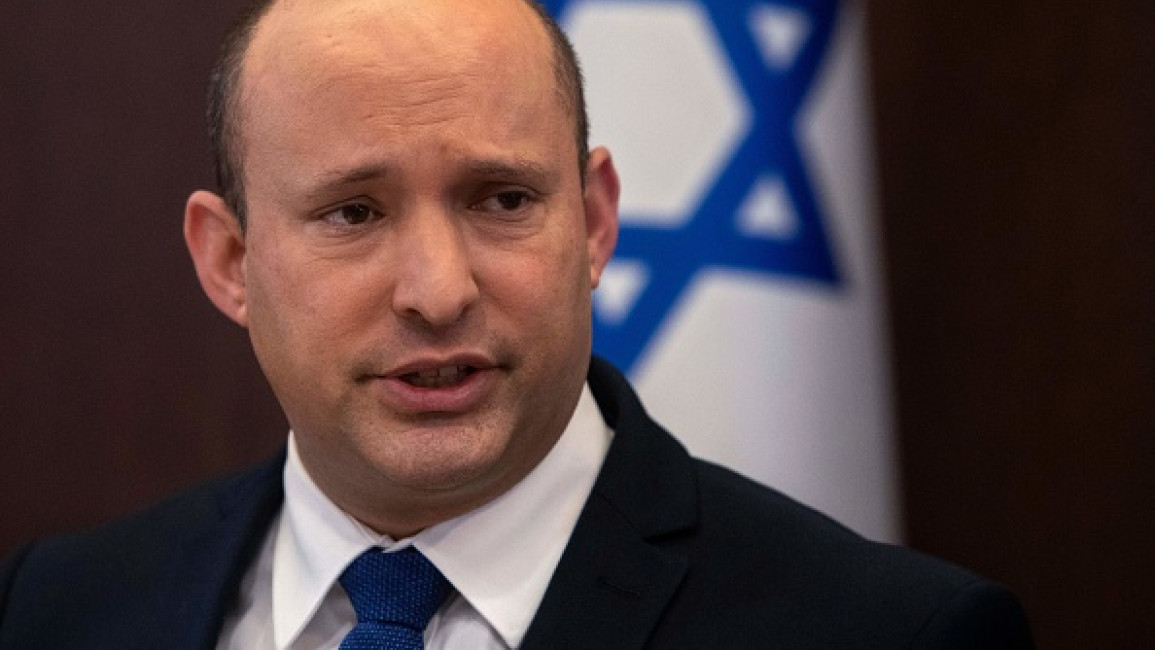Israel government's fate hangs on key budget vote
The Israeli government's budget headed for parliamentary approval Wednesday, a key test that will largely determine whether Prime Minister Nafatali Bennett's ideologically disparate eight-party coalition remains in power.
Israel has not passed a state budget in three years, a symptom of the unprecedented political gridlock that plagued the country from December 2018 until June when the Bennett government was sworn in.
His coalition has until November 14 to get the budget approved or Israel's parliament, the Knesset, will be dissolved, forcing new elections.
"We are at the finish line and before us are exhausting days and long nights in the Knesset, but the budget will pass," Bennett said ahead of a cabinet meeting Thursday.
The government has proposed a 609-billion shekel ($194-billion) spending plan for 2021 and 573 billion shekels for next year.
Bennett's government secured preliminary approval for a spending package in September, a technical step that allowed Knesset committees to scrutinise the proposals.
The committees were due to wrap up their reviews on Wednesday evening, when a general parliamentary debate on the package could commence.
The formal voting process may not begin until Thursday or later and the approval process could take several days.
Bennett told lawmakers that "passing the budget should be treated as the biggest, only challenge in the next few days.
"This is the mission, and we need to meet it."
Netanyahu seeks 'collapse'
Bennett's government - which includes right-wingers, centrists, doves and Islamists - controls just 61 seats in the 120-seat Knesset.
It was a budget deadlock that sank the last, short-lived coalition led by former prime minister Benjamin Netanyahu and his alternate premier Benny Gantz.
Gantz accused Netanyahu of deliberately blocking the budget's passage to force an election, which the premier hoped would secure him and his right-wing allies an outright Knesset majority.
But Netanyahu came up short in the March vote for the fourth time in two years, paving the way for Bennett and Yair Lapid, now the foreign minister, to forge a coalition.
Read also: 'A lifetime lost': Israeli settler attacks on olive crops helps spearhead land grabs in Palestine
There have been widespread reports that Netanyahu, now the opposition leader, has been encouraging hawks within the government to vote against the budget, in hopes of triggering its collapse.
"We are pulling the country toward stability and there are those who are pulling it toward chaos, to more elections," Bennett said Thursday.
On Tuesday night, hundreds of right-wing protesters gathered in Tel Aviv to denounce the "corrupt" budget, charging that it harms ultra-Orthodox Jews and lavishes spending on the Arab community.
But a lawmaker in Netanyahu's right-wing Likud party, David Bitan, told army radio he expected the budget to be approved.
The government has approved nearly $10 billion in funding over five years to improve socio-economic conditions for Israel's Arab minority, while hiking some taxes that the ultra-Orthodox argue will affect them the most.



